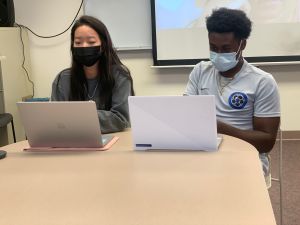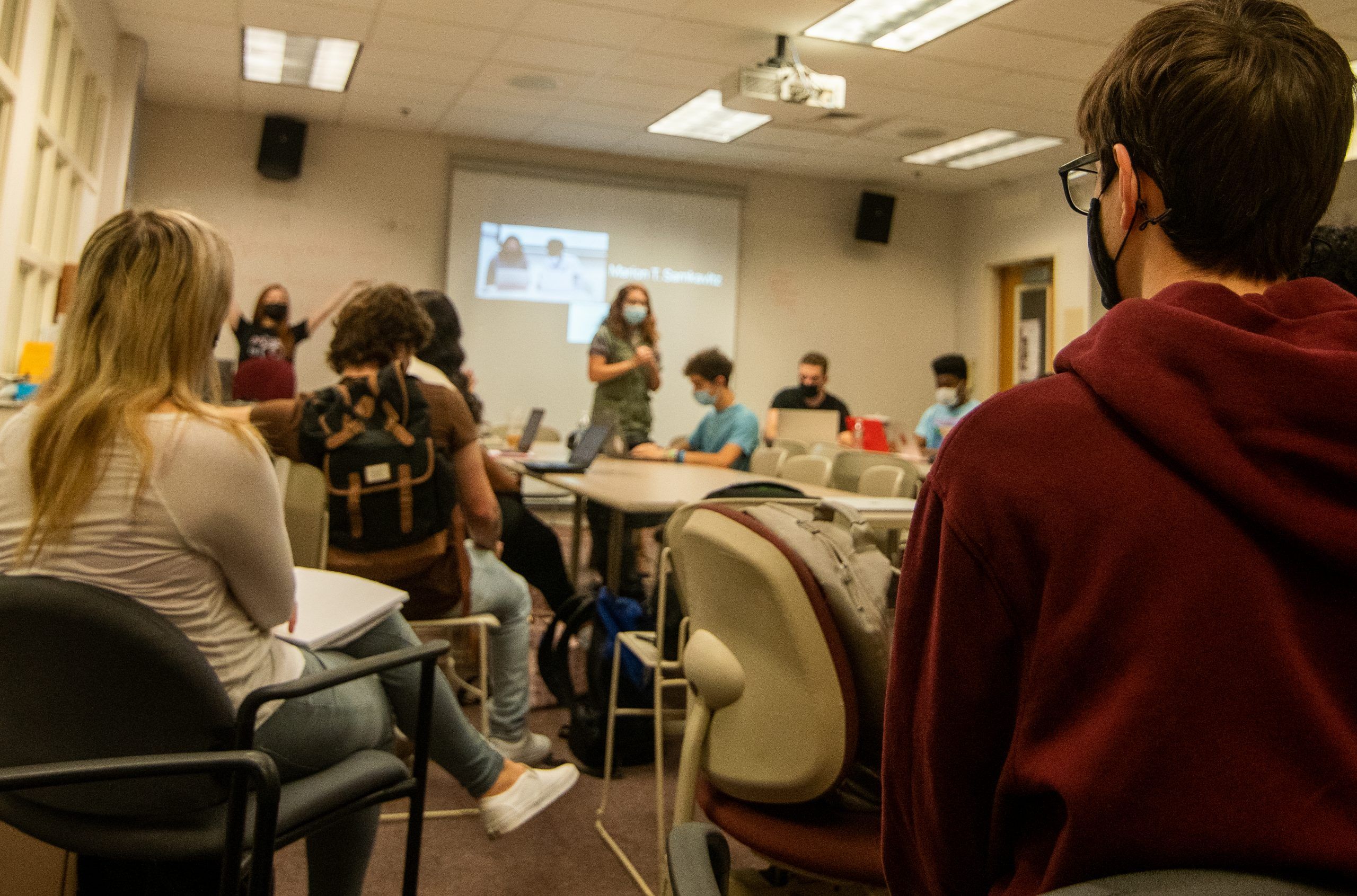Click here to listen to the full podcast.

Elizabeth Wellington saw how people referred to her mother as a white woman, based on her skin tone, despite her being a black woman.
As a child, Wellington recalled a new kid on her school bus asking her, “Who’s the white lady answering the door? All my life people have asked me if my mother was white; She was my mother, who was black.”
It was her mom who shaped Wellington’s “blackness,” inspiring a recent Philadelphia Inquirer essay exploring her identity. She said her mom was one of the most “militant, strong” people when it comes to blackness.
Those types of sentiments fueled Wellington to embrace and be proud of her blackness, which is also seen through her writing. Wellington, an award-winning journalist, shared her story and her reflections on her recent story with the Loquitur staff.
She’s been killing this job for over 18 years and continues to provide her audience with capturing topics. The Loquitur staff had an honorary visit from a renowned journalist. She’s been killing this job for over 18 years and continues to provide her audience with capturing topics.
Elizabeth Wellington, a style columnist for the Philadelphia Inquirer, has been doing this since she graduated from New York University. She’s been featured in outlets including The Washington Post, Chicago Tribune and Seattle Times and has been given awards from the following organizations: The National Association of Black Journalists (NABJ), Keystone & the Society of Professional Journalists (SPJ).
Wellington’s stories include but are not limited to gender, race, wellness, fashion, style and pop culture. The articles that she has the most passion for relate to black identity.
“The pain of being black wasn’t always in my face, but when it was, it helped me as a writer,” Wellington said. Whether the article is about: her family’s identity, segregation laws in Philadelphia that impact the city today or about systemic racism, she got to advocate from a personal perspective.
It wasn’t until Wellington grew up before she realized the struggles black people were going through. This would later inspire her to exemplify the concept of blackness. “We all as black people should realize we all play a larger role in American history,” Wellington said.

Researching her family’s lineage is her biggest inspiration for what she does. Knowing her mother was light skin, she had found out that her grandfather was mulatto (mixed). When asked about her genealogy and trying to find the answer but not being able to figure it out, Wellington said, “It’s a process… there was so much being done… as you get answers, you have more questions.” Her mother taught Wellington that she should be proud of her black identity.
The topic of racial microaggressions was discussed throughout the conversation. Wellington attributed that as normalcy that happens throughout her tenure at the Philadelphia Inquirer. “Back in 2017, when I was in the bathroom after work, a coworker came up to me and said, ‘it’s good to have class in the White House again,’” Wellington said.
“If it feels like a microaggression, then it is a microaggression,” Wellington said. The microaggressions have been more apparent due to the racial unrest that was highlighted in 2020.
“History speaks for itself,” when Wellington is confronted about her standpoints as a journalist, she shrugs it off with that phrase. During the speech, she added that the discomfort from non-BIPOC individuals, about blackness is because people feel responsible for their actions and words.
“As of recently, black people can experience blackness on their own terms.” With the highlighted racial injustices earlier this year, there has been more of an effort to listen to a black point of view. A clearer spotlight on Juneteenth, recognizing racist imagery and examining the struggle of being black in America, is a step in the right direction, but is not enough.
She recently published an article about the R. Kelly verdict showing why it’s important to listen to Black women when they speak up. Wellington actively uses her voice to advocate social justice topics that make a difference and bigger impact.
Wellington wants her articles to emphasize the importance of black culture from a black perspective. While addressing a room full of Loquitur journalists, Wellington mentioned the importance of ethics in journalism. “Evaluate who you are as a journalist, and bring your ethics as a person, as a journalist.”
Editor’s note: Wellington left an indelible mark on the Loquitur staff through her wise words, amazing articles and eloquent language. We thank Elizabeth Wellington for her time and consideration in meeting with us and wish her nothing but the best. As time goes by, we will anticipate her next amazing article and advocate her passionate skills.



